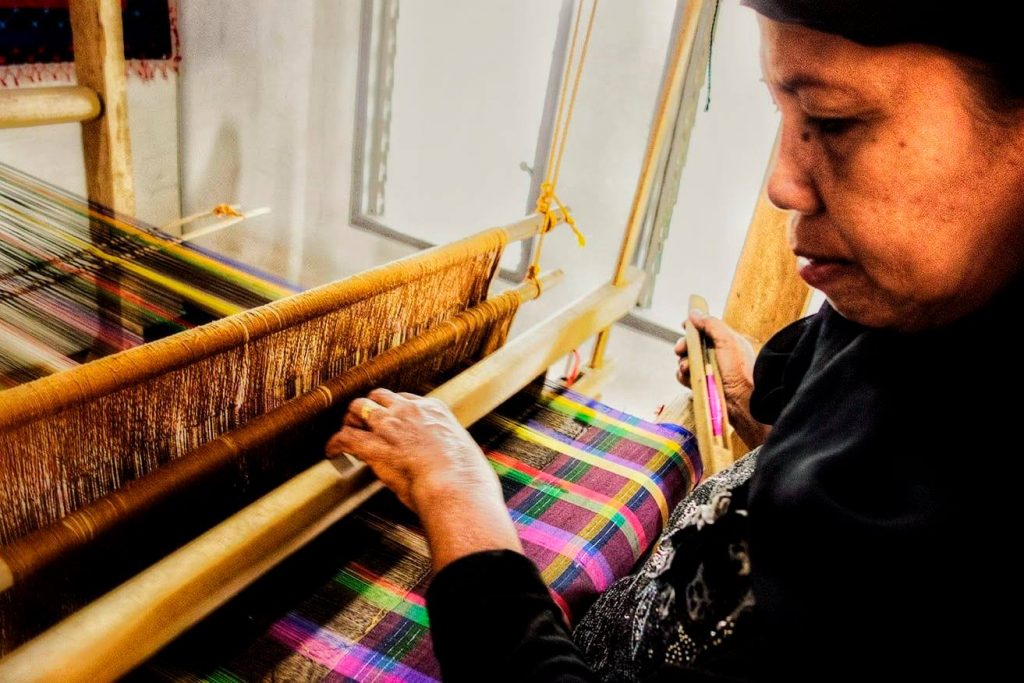Co-Author: Amanda Kee
4 min read
She empowers small indigenous women makers by giving them opportunities to oversee weaving co-ops, become role models for other women in their communities and inspire their next generation.
How did you become a social entrepreneur?
I started my social enterprise carrying green, fair trade products that support marginalised indigenous communities in the Philippines. Within a few short years, we evaluated our metrics and realised that it was an entirely women-led business, working with almost 86% women suppliers and serving a consumer base made up of 90% women!
As our business became successful, the Philippines Commission on Women reached out to us with a national development project called GREAT Women. It wanted our help to empower women economically. So, we began to promote responsible luxury and expanded the GREAT Women platform across ASEAN by selling women makers’ products and services in other markets.
How does GREAT Women expand market access for women?
To provide our creators with market access, we engage them across our supply chains by selling their products throughout online and in-stores.
Other activities include:
- Bringing the community together
We run regular pop-up markets that bring micro entrepreneurs, indigenous people, smaller brands as well as designers together. These opportunities allow them to feature all their textiles instead of just the ones made for GREAT Women in order to promote their individual crafts and creativity too. - Fully integrating the supply chain
Philippine Textiles Research Institute was setting up the first ever sustainable micro yarn facility and wanted to partner with us. With that, I can finally say that GREAT Women is fully involved in the entire supply chain of our products – from sustainable yarn-making through to the final products. - Providing access to capital
Many microfinancers refuse to give women access to finance, which hinders them from entering the craft. This is when I decided to use the GREAT Women stock purchase fund as a soft loan. Funders can provide loans that will help us purchase threads for the makers GREAT Women will then buy back the finished textiles directly from the women to ensure stable incomes and sell it to consumer markets. This innovative circular financing instrument empowers and keeps the small women creators in our supply chain while sustaining their income streams.
What inspires you to continue onwards with this journey?
I had previously crossed paths with a 42-year-old pregnant woman in the Philippines. Her husband, a rickshaw driver, was the sole breadwinner, and had to provide for their kids, her mother and grandmother. I suggested that she joined our weaving community to make some side income. With each piece of product sold, she would stick the price tag on her bathroom mirror. The price tags slowly accumulated and soon, she was putting food on the table too. Through this, she realised that she was a creative person, and eventually became a leader in the weaving co-op.
Experiences like this inspire me. I have had the pleasure of watching many of these women grow from being timid micro-entrepreneurs to strong and confident business leaders capable of the unthinkable. It makes me want to do more to support them!
What is your vision for the future, and how can others support you in this journey?
GREAT Women must expand our presence online! What we’ve done so far is only physically bringing the products and textiles out of the communities and into the broader market. With a more robust online platform, we may even expand our business by providing sustainable community tours!
For this to materialise, we need investment partners. This is where the support of AVPN has been invaluable to us. It has especially helped me in understanding the space better, where to focus my efforts on and the direction for expansion.
Look through GREAT Women’s Deal Page and reach out if you wish to explore how you can collaborate to further their cause!


















